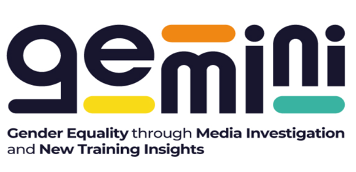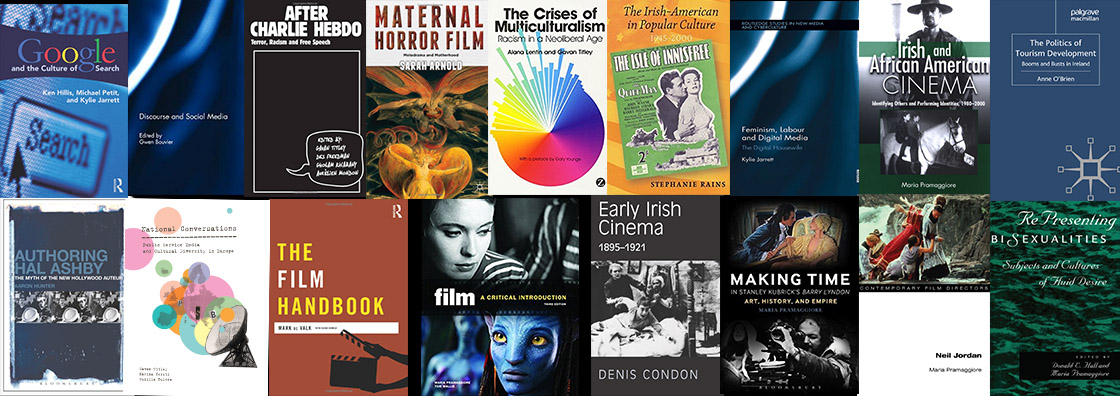Media Studies Research
The department of Media Studies has an extensive research profile which encompasses historical as well as contemporary media industries, technologies and audiences, and a wide range of media formats. Recent and ongoing research projects and publications range from the earlier histories of popular culture, print, film and broadcast media to the study of contemporary digital platforms and digital art practices. Published work by members of the department includes material on early cinema and media history in print, radio and television as well as social media and the platform economy, and the significance of media to such questions as freedom of speech, racism and anti-racism, anti-gender politics, queer identities and disability rights.
Across a variety of media formats and histories, there is a particular focus on the political economy of the media, including advertising and consumer culture, platform economics, capital, digital labour, political communication and media work. This includes studies of work across all of the creative industries as well as platform work and digital labour by users. A significant amount of this research on media work has focused on its gendered aspects, such as research on female film pioneers, women in early television, the impact of motherhood on media work, and gender inequalities across a variety of creative industries from early cinema to the platform economy.
The department has a strong research emphasis on intersectionality in media analysis. This includes past and present work which examines media texts and industries through the intersections of gender, sexuality, race, religion and class. Media and digital art practice is also an area in which several members of the department are both scholars and practitioners. This practice-based research includes performance studies, digital art practice and digital poetry to scholarship on digital hermeneutics and cultural production.
Our internationally recognised researchers publish extensively in both academic and popular contexts – see our People page for individual research profiles. In addition to this, we have strong connections with the Irish media industry, the MU Social Sciences Institute and the MU Arts and Humanities Institute, as well as the global academic community.
Our undergraduate and graduate students benefit from a rich research environment and from the global academic connections developed and maintained by our lecturers. We maintain an excellent research output and remain at the forefront of both Irish and global media research.
We welcome any queries from potential graduate students and research collaborators. Our department supports a range of post-doctoral, doctoral projects and masters projects, and has experience in IRC and MSCA postdoctoral mentorship as well as postgraduate supervision of IRC fellowships and Government of Ireland International Education Scholarships. All members of the department welcome informal emails from potential graduate students or researchers for initial discussion of a project idea.
If you are interested in our MA in Critical and Creative Media or undertaking a PhD or MLitt with the Department of Media Studies, you are also invited to contact the Research and Postgraduate Coordinator, Professor Gavan Titley.
Maynooth University Department of Media Studies
ToggleGEMINI Research Project
GEMINI Research Project

GEMINI (Gender Equality through Media Investigations and New training Insights) is a research-action project that combines research and training, as well as the development of media products and policy recommendations on the subject of gender equality in audio-visual media. The project aims to both raise awareness of the importance of positive gender representation and to produce research outputs that actively contribute to this goal. Funded under the EU-CERV (Citizens, Equality, Rights and Values) programme, GEMINI incorporates the viewpoints of media scholars, policy experts, media producers, educators, as well as high school students (14-18 year-olds), across the European Union.
In line with the EU Gender Equality Strategy 2020-2025 and with a particular focus on young people and television serial drama, the project supports this target group in identifying gender representations from an intersectional (gender, sexuality, race, class, (dis)ability, neurotype and more) perspective, as well as in exploring how serial dramas can engage with gender equality issues in positive ways. The research involves a mixed-methods approach, which includes: conducting in-depth interviews with key stakeholders, such as teachers and media producers; facilitating focus groups and conducting surveys with high school students; as well as conducting content and sentiment analysis of a corpus of television serial dramas. As GEMINI is a youth-focused project, the make-up of the corpus will be influenced by the outcome of the focus groups and surveys i.e. the programmes that young people themselves are watching.
The project also provides the opportunity for young participants to create audio-visual media objects, such as television scripts, that promote gender equality. Instead of perpetuating problematic stereotypes, these contributors will be supported to create media content that depicts more nuanced and complex representations of gender and sexuality. In this sense, the young people who participate in GEMINI do so not just as research subjects but also as creators of new content, as active citizens, as well as potential agents of change as they are informed and empowered to become ‘gender equality ambassadors’ in their communities.
The main academic partners involved in the initial research stage of the project, are: Aalborg University in Denmark, Link Campus University in Italy, University of Bucharest in Romania and Maynooth University in Ireland. There are also other academic and non-academic institutions and organisations partaking in different phases of the project across the EU, such as Capacity Ireland, a community-based provider of training and work experience for those working in, or entering, the creative industries. Capacity Ireland’s role in the GEMINI project entails contributing to the development of targeted training modules and resources for educators and students, including a pilot course on deconstructing the relationship between TV and gender equality, as well as running a screenwriting competition for young people.
The focus groups are taking place in high/secondary schools in select countries across the EU, representing main compass points on the continent, for example, north (Denmark), south (Italy), east (Romania) and west (Ireland). The geographical and socio-cultural spread of locations has been chosen to gain perspectives from as diverse a cohort as possible. In Ireland, the focus groups are being carried out with Transition Year students by Dr Sarah Arnold and Dr Izzy Fox, both based in the Media Studies department at Maynooth University. Dr Arnold is a contributing researcher on GEMINI, while Dr Fox is a postdoctoral researcher on the project. The outcomes of these focus groups will inform later stages of the project, including all research outputs.
One of the major outputs from the project will be an educational toolkit that, firstly, aims to provide teachers and trainers with guidelines on how to understand the role that elements of popular culture, especially audio-visual media, play in propagating and resisting negative gender representation. The toolkit will also produce educational resources, including materials supporting students’ creativity, that will contribute to awareness-raising of gender equality issues as they are conveyed through popular media forms. Other project outputs include a report entitled “Knowing the Gender Equality Issue through the Lens of TV Series”; scholarly publications and conference papers; guidelines and policy recommendations for EU and national institutions, in addition to broadcasters and streaming platforms; as well as other communication, outreach and promotional events.
Ultimately, the long-term goal of the GEMINI project is to inform citizens of all ages across the EU about the importance of gender representation in audio-visual media, both in terms of narrative content and media production. The stories that get told, who tells them and how they get told, influence public consciousness as to which narratives and experiences are deemed to be of cultural value. Consequently, GEMINI aims to diversify audio-visual media products, beginning with serial dramas, and offers a blueprint for future research-action projects to extend its framework, methods and outputs to popular culture, more broadly.
Full Stack Feminism in Digital Humanities
Full Stack Feminism in Digital Humanities

‘Full Stack Feminism in Digital Humanities' (2021 – 2023) is a collaborative UK-Ireland project between the University of Sussex (UK), Technological University Dublin (Ireland) and Maynooth University (Ireland). Partners include Cambridge Digital Humanities (UK), the Digital Repository of Ireland and the Irish Museum of Modern Art. The project aims to make the field of Digital Arts and Humanities more inclusive by developing an intersectional feminist framework for individuals and teams to apply to their research or community led digital projects.
https://fullstackfeminismdh.pubpub.org/

